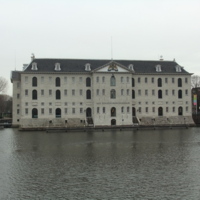2 results
Legacies on Display: Slavery in Museums
Museums are exciting places to see the usable past in action. They bring together objects, people and places to provide interpretation and facilitate discussions on a range of topics, from history to human rights. There is a global tradition of museums representing slavery beginning in the early twentieth century. These museums range from small, local community museums in the UK, that focus on individual abolitionist leaders, to redeveloped slave forts on the West African coast and large national institutions in North America. As well as providing visitors with information about slavery, both historic and modern, museums can also provide evidence as to how societies are thinking about these issues.
This collection showcases museums across the world that house permanent exhibitions relating to slavery and abolition.

Tropenmuseum of World Cultures
The Tropenmuseum of World Cultures (direct translation; Museum of the Tropics) is an ethnographic museum, founded in 1864. Housed in one of the 'most impressive buildings in Amsterdam', the museum features eight permanent exhibitions and a series of temporary exhibitions. The key theme of the museum…

Het Scheepvaartmuseum
Het Scheepvaartmuseum is the National Maritime Museum of the Netherlands. Housed in a seventeenth-century naval storehouse, the museum showcases the ways in which Dutch culture has been influenced by the sea. A vast array of collections, including paintings, maps, maritime instruments and weapons…